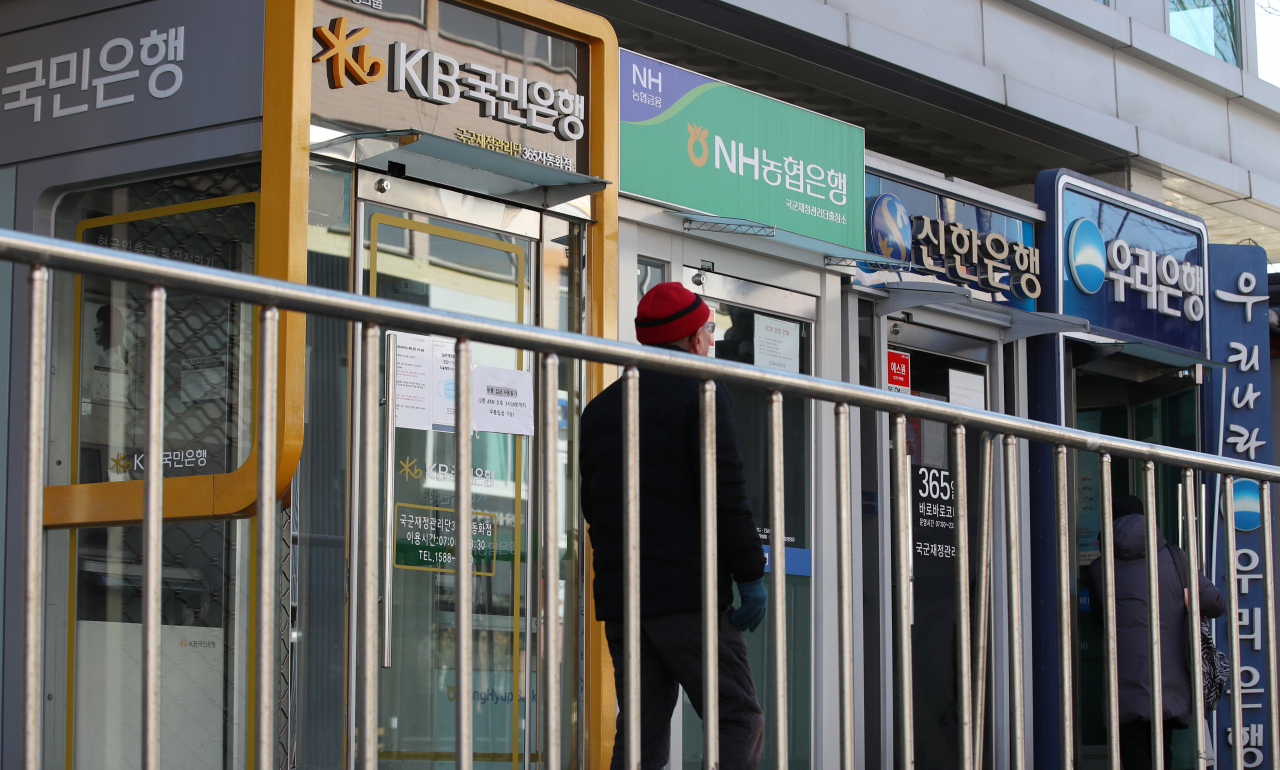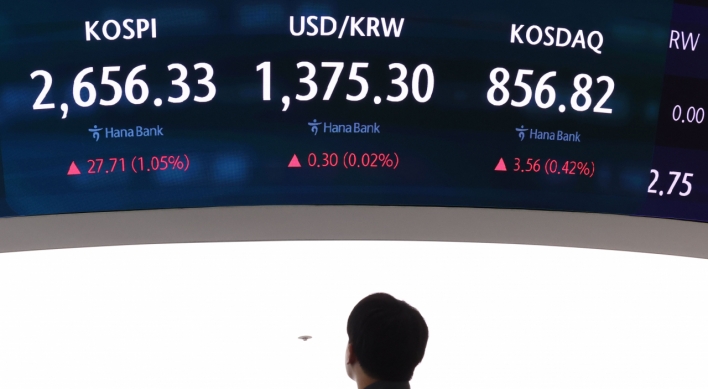Catastrophic losses pile up from HK-tied ELS
Around W107b in losses confirmed so far; average loss ratio at about 50%
By Choi Ji-wonPublished : Jan. 14, 2024 - 15:30

The equity-linked securities fiasco is turning into a reality for South Korean banks as a load of the derivative products tied to the slacking Hong Kong's benchmark Hang Seng China Enterprises Index started maturing this month.
As of Friday, around 106.7 billion won ($81.14 million) in principal losses have been confirmed from the sales of the Hong Kong index-tied ELS products sold by the five major Korean commercial banks, according to sources from the financial ring on Sunday. The five banks are Kookmin, Hana, Shinhan, Woori and NH NongHyup.
The amount piled up in just five days since Jan. 8 when losses from ELS products underlying the Hong Kong index began to occur this year. Derivatives worth 210.5 billion won matured during the period, of which 50.7 percent evaporated into thin air due to losses.
An ELS is a type of fixed-income derivative that pays out a return based on the performance of certain equities. Investors are entitled to promised returns if the underlying asset price stays above a set level -- or knock-in level -- until maturity. Conversely, if the price falls below a predetermined level, the investors lose the principal.
The Hong Kong-tied ELS sales have turned into a national catastrophe after it was revealed the local financial firms had sold the high-risk derivatives in early 2021, when the HSCEI reached a high of around 12,000 in February before running a steep downhill. The gauge dropped to below 5,000 in October 2022 and recently hovered around 5,500.
The loss incurred by the local investors is expected to snowball dramatically over the coming year when most of the three-year maturity ELS products are set to be redeemed.
According to the Financial Supervisory Service, the total outstanding balance of the ELS products was 19.3 trillion won as of November. Of this, almost 80 percent are set to mature this year.
The regulators and the industry are bracing for a big blow in the first half of the year when some 10.2 trillion won of the lot are set to mature.
In detail, the banking sector sold 82 percent of the total ELS outstanding balance, and from them, around 800 billion won is expected to mature within the month, a Korea Investment and Securities report released in December showed. Another 1.4 trillion won will mature in February, followed by 1.6 trillion won in March and a whopping 2.6 trillion won in April, the data added.
If the Hong Kong index remains at the current level, the anticipated loss during the first half could exceed 5 trillion won.
The botched investment is expected to take a much harder toll on retail investors, with around 17.7 trillion won having come from individual investors, and 30 percent of that coming from over-65s, FSS data showed.
The local financial authorities are currently investigating the 12 major sellers for possible misselling.
The FSS last week announced it is launching an official on-site inspection into the sellers after discovering some serious rule violations and irresponsible management in relation to ELS sales through its preliminary review conducted in late 2023.
Beginning with Kookmin Bank and Korea Investment and Securities, the top-selling bank and securities firm of ELS products, respectively, the watchdog said it will extend the examination to other companies in January.
An investigation into the complaints filed by the investors against the two major sellers will also take place simultaneously.
According to finance industry insiders, a combined 1,410 complaints related to the ELS misselling have been filed against the five major banks as of Friday, with 518 made this year alone.









![[Weekender] How DDP emerged as an icon of Seoul](http://res.heraldm.com/phpwas/restmb_idxmake.php?idx=644&simg=/content/image/2024/04/25/20240425050915_0.jpg&u=)

![[Today’s K-pop] NewJeans' single teasers release amid intrigue](http://res.heraldm.com/phpwas/restmb_idxmake.php?idx=644&simg=/content/image/2024/04/26/20240426050575_0.jpg&u=)






![[Herald Interview] Mistakes turn into blessings in street performance, director says](http://res.heraldm.com/phpwas/restmb_idxmake.php?idx=652&simg=/content/image/2024/04/28/20240428050150_0.jpg&u=)
